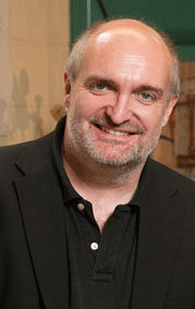China names chemistry professor accredited international expert, cancer research adviser
Wednesday, Feb. 25, 2015
MANHATTAN — China is honoring a Kansas State University cancer researcher and enlisting his expertise through an upcoming research appointment.
Stefan H. Bossmann, professor of chemistry in the College of Arts & Sciences, has been awarded the title of Highest Honored International Expert by a panel of scientific advisers to the Chinese State Administration of Foreign Experts Affairs.
During the summer, Bossmann will advise the Chinese authorities — who have declared China a "cancer disaster area" — on methods of early cancer detection. He will spend the summer at The First Affiliated Hospital of Kunming Medical University, in Kunming, Yunnan Province.
This recent award to Bossmann follows a Guest Distinguished Scholarship and an Honorary Distinguished Professorship, both in 2014, from Kunming Medical University, as well as a collaborative research grant from the Chinese National Natural Science Fund, titled "Synthesis of Validation of Thyroid-Cancer Homing Starburst Dendrimer Derivatives Capable of Binding Radioactive Isotopes for Imaging and Therapy."
Dr. Gaohong Zhu, professor of medicine and head of radiology at The First Affiliated Hospital of Kunming Medical University, will host Bossmann and his senior research associate, Hongwang Wang, during their stay. Zhu spent 2013-2014 at Kansas State University as a visiting professor in the chemistry department, and is a principal investigator of the Chinese research grant, which is the first of its kind.
The First Affiliated Hospital of Kunming Medical University and Kansas State University have previous research ties. The hospital is licensing the university's early cancer detection test technology titled "Cancer Diagnostic Assays, Fluorescence Assays for Proteases." The invention was jointly developed by Deryl L. Troyer, a veterinarian and professor of anatomy and physiology in the university's College of Veterinary Medicine, and Bossmann.
Currently, biospecimens from 10,000 cancer patients and healthy subjects are being analyzed in Kunming, with the goal of detecting emerging cancers as early as possible.

